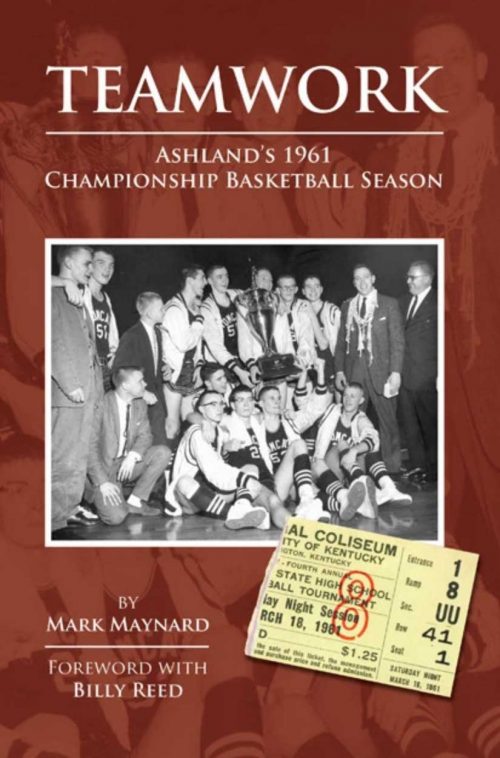-
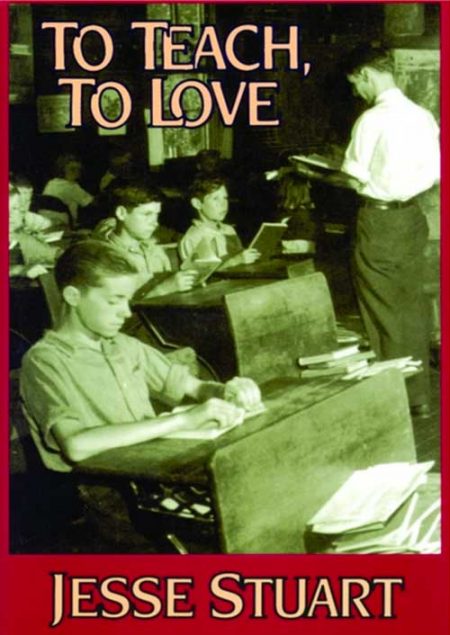 Stuart's autobiographical account of much of his educational career. This great Kentucky novelist, short story writer, poet, and teacher writes about his boyhood, his elementary school and high school experiences, and his days at Lincoln Memorial University. He tells of teaching in a one room rural schoolhouse, his experiences as a county school superintendent, and his stay as a teacher at American University in Cairo, Egypt. He explains what classroom methods worked best, and why, and speculates on what has gone wrong with American schools. By Jesse Stuart
Stuart's autobiographical account of much of his educational career. This great Kentucky novelist, short story writer, poet, and teacher writes about his boyhood, his elementary school and high school experiences, and his days at Lincoln Memorial University. He tells of teaching in a one room rural schoolhouse, his experiences as a county school superintendent, and his stay as a teacher at American University in Cairo, Egypt. He explains what classroom methods worked best, and why, and speculates on what has gone wrong with American schools. By Jesse Stuart -
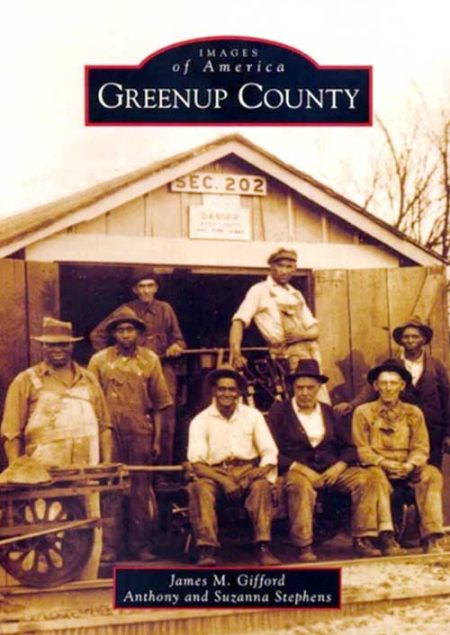 Greenup County, bordering the Ohio River in northeastern Kentucky, is rich in history and culture. Settlers first arrived in the mid-1700s and carved farms from hardwood forests. Lucy Virgin Downs, the first white child born west of the Alleghenies, lived in Greenup County, as did Jesse Boone, brother of Kentucky icon Daniel Boone. The 20th century brought industrialization and economic diversification to the historically agricultural area. Ashland Oil, a Fortune 500 company, maintained corporate headquarters in Greenup County. Two steel mills, a large rail yard, an excellent hospital, and a number of surface mines also provided employment to many people who continued to work their family farms, too. This economic progress was mirrored in every aspect of country life as education, health care, and recreation all improved dramatically. Today Greenup County’s history is appreciated by both longtime residence and cultural tourists. James M. Gifford serves as chief executive and senior editor of the Jesse Stuart Foundation, a regional publishing house. Dr. Gifford’s coauthors, Anthony and Suzanna Stephens, are eastern Kentuckians. The authors gathered photographs from dozens of personal and library collections.SOFTBACK By James M. Gifford, Anthony and Suzanna Stephens
Greenup County, bordering the Ohio River in northeastern Kentucky, is rich in history and culture. Settlers first arrived in the mid-1700s and carved farms from hardwood forests. Lucy Virgin Downs, the first white child born west of the Alleghenies, lived in Greenup County, as did Jesse Boone, brother of Kentucky icon Daniel Boone. The 20th century brought industrialization and economic diversification to the historically agricultural area. Ashland Oil, a Fortune 500 company, maintained corporate headquarters in Greenup County. Two steel mills, a large rail yard, an excellent hospital, and a number of surface mines also provided employment to many people who continued to work their family farms, too. This economic progress was mirrored in every aspect of country life as education, health care, and recreation all improved dramatically. Today Greenup County’s history is appreciated by both longtime residence and cultural tourists. James M. Gifford serves as chief executive and senior editor of the Jesse Stuart Foundation, a regional publishing house. Dr. Gifford’s coauthors, Anthony and Suzanna Stephens, are eastern Kentuckians. The authors gathered photographs from dozens of personal and library collections.SOFTBACK By James M. Gifford, Anthony and Suzanna Stephens -
 When the Japanese attacked Pearl Harbor in December 1941, Cornelia Fort was already in the air. At twenty-two, Fort had escaped Nashville’s debutante scene for a fresh start as a flight instructor in Hawaii. She and her student were in the middle of their lesson when the bombs began to fall, and they barely made it back to ground that morning. Still, when the U.S. Army Air Forces put out a call for women pilots to aid the war effort, Fort was one of the first to respond. She became one of just over 1,100 women from across the nation to make it through the Army’s rigorous selection process and earn her silver wings. SOFTBACK VERSION By Katherine Sharp Landeck
When the Japanese attacked Pearl Harbor in December 1941, Cornelia Fort was already in the air. At twenty-two, Fort had escaped Nashville’s debutante scene for a fresh start as a flight instructor in Hawaii. She and her student were in the middle of their lesson when the bombs began to fall, and they barely made it back to ground that morning. Still, when the U.S. Army Air Forces put out a call for women pilots to aid the war effort, Fort was one of the first to respond. She became one of just over 1,100 women from across the nation to make it through the Army’s rigorous selection process and earn her silver wings. SOFTBACK VERSION By Katherine Sharp Landeck -
 “Wit, Wisdom and Other Stuff” is a compilation of 125 commentaries. He is a former reporter for The Associated Press and for newspapers in Ironton, Ohio, Ashland, Ky. and Huntington, W.Va. Keith Kappes is a retired university vice president who returned to community journalism to be publisher of the Morehead News Group for six years. Two years before this book project, he wrote and published “The View from my Keyboard." SOFTBACK VERSION By Keith Kappes
“Wit, Wisdom and Other Stuff” is a compilation of 125 commentaries. He is a former reporter for The Associated Press and for newspapers in Ironton, Ohio, Ashland, Ky. and Huntington, W.Va. Keith Kappes is a retired university vice president who returned to community journalism to be publisher of the Morehead News Group for six years. Two years before this book project, he wrote and published “The View from my Keyboard." SOFTBACK VERSION By Keith Kappes -
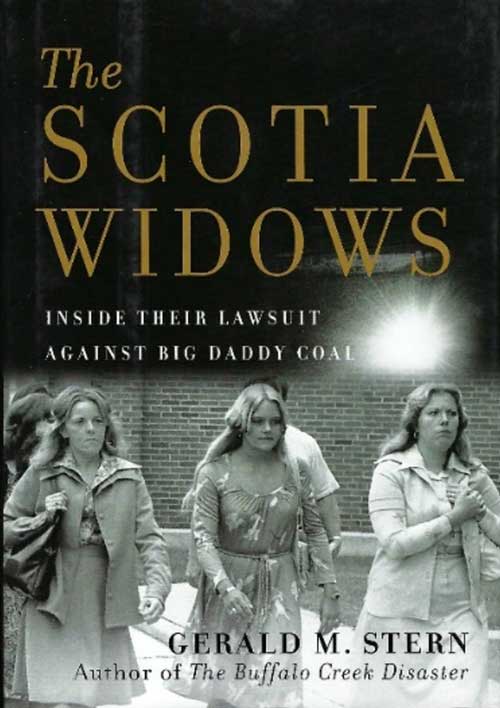 The Scotia Widows: Inside Their Lawsuit Against Big Daddy Coal On March 9, 1976, a violent explosion, fueled by high concentrations of methane gas and coal dust, ripped through the Scotia mine in the heart of Eastern Kentucky coal country. The blast killed fifteen miners who were working nearly three and a half miles underground; two days later, a second explosion took the lives of eleven rescue workers. For the miners’ surviving family members, the loss of their husbands, fathers, and sons was only the beginning of their nightmare. By Gerald M. Stern
The Scotia Widows: Inside Their Lawsuit Against Big Daddy Coal On March 9, 1976, a violent explosion, fueled by high concentrations of methane gas and coal dust, ripped through the Scotia mine in the heart of Eastern Kentucky coal country. The blast killed fifteen miners who were working nearly three and a half miles underground; two days later, a second explosion took the lives of eleven rescue workers. For the miners’ surviving family members, the loss of their husbands, fathers, and sons was only the beginning of their nightmare. By Gerald M. Stern -
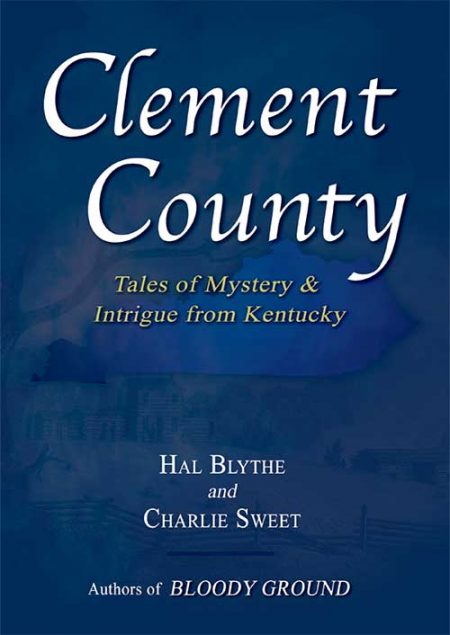 Everything from gritty reality to the supernatural rears its head in Clement County: Tales of Mystery & Intrigue from Kentucky. The authors write of the fictional southeastern Kentucky county through an anthology drawn from their over 40 years of writing together. SOFTBACK VERSION By Hal Blythe and Charlie Sweet
Everything from gritty reality to the supernatural rears its head in Clement County: Tales of Mystery & Intrigue from Kentucky. The authors write of the fictional southeastern Kentucky county through an anthology drawn from their over 40 years of writing together. SOFTBACK VERSION By Hal Blythe and Charlie Sweet -
 Following World War I, our nation entered a decade of national prosperity. Businesses flourished, and the standard of living rose. Jobs were plentiful and Americans were better fed, clothed, and housed than they had ever been before. However, the prosperity of the roaring twenties did not filter down to the rural poor of Appalachia. When Jack Ellis was born to Lon and Dot Ellis in 1927, the family lived near Morehead, Kentucky in a dilapidated, leaky, rat-infested house with no screens on the windows and one room that had a dirt floor. By the time Jack entered grade school, America was mired in the Great Depression. During the 30s, his father was employed by the Civilian Conservation Corp. for several years, but his mother became discouraged and depressed after losing her teaching position in the Rowan County schools. By Jack D. Ellis
Following World War I, our nation entered a decade of national prosperity. Businesses flourished, and the standard of living rose. Jobs were plentiful and Americans were better fed, clothed, and housed than they had ever been before. However, the prosperity of the roaring twenties did not filter down to the rural poor of Appalachia. When Jack Ellis was born to Lon and Dot Ellis in 1927, the family lived near Morehead, Kentucky in a dilapidated, leaky, rat-infested house with no screens on the windows and one room that had a dirt floor. By the time Jack entered grade school, America was mired in the Great Depression. During the 30s, his father was employed by the Civilian Conservation Corp. for several years, but his mother became discouraged and depressed after losing her teaching position in the Rowan County schools. By Jack D. Ellis -
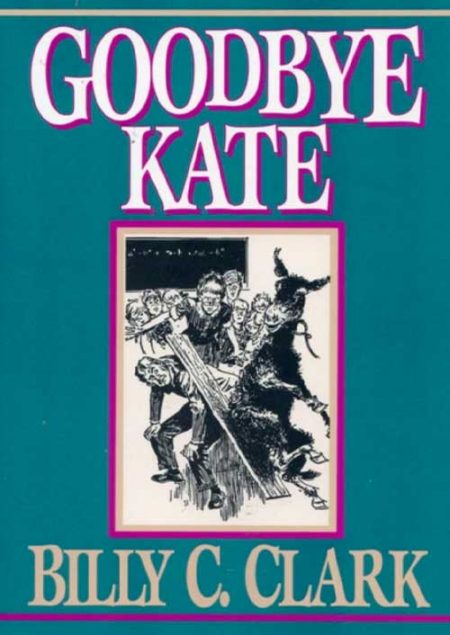 Goodbye Kate, Billy C. Clark’s sixth novel, is based in part on a mule he once owned. In the novel, Kate is found far back in the hills by a lonely country boy named Isaac Warfield. He lives close enough to Tatesburg, the nearest town, to walk to school there, but it’s a small town, and his home is isolated. Isaac has graduated from the little country school he has attended and the other members of his class will be moving on to another school, or to no school at all. He won’t have much contact with his friends anymore, and the nearest neighbor, a money-hungry man named Simm Johns, has no children and is “mean as a striped snake.” Isaac finds Kate when he goes back into the hills to pick some blackberries for his mother. The little mule is apparently as lonely as Isaac is, and she adopts him and follows him home – as far as the pine grove above the house, that is. By Billy C. Clark
Goodbye Kate, Billy C. Clark’s sixth novel, is based in part on a mule he once owned. In the novel, Kate is found far back in the hills by a lonely country boy named Isaac Warfield. He lives close enough to Tatesburg, the nearest town, to walk to school there, but it’s a small town, and his home is isolated. Isaac has graduated from the little country school he has attended and the other members of his class will be moving on to another school, or to no school at all. He won’t have much contact with his friends anymore, and the nearest neighbor, a money-hungry man named Simm Johns, has no children and is “mean as a striped snake.” Isaac finds Kate when he goes back into the hills to pick some blackberries for his mother. The little mule is apparently as lonely as Isaac is, and she adopts him and follows him home – as far as the pine grove above the house, that is. By Billy C. Clark -
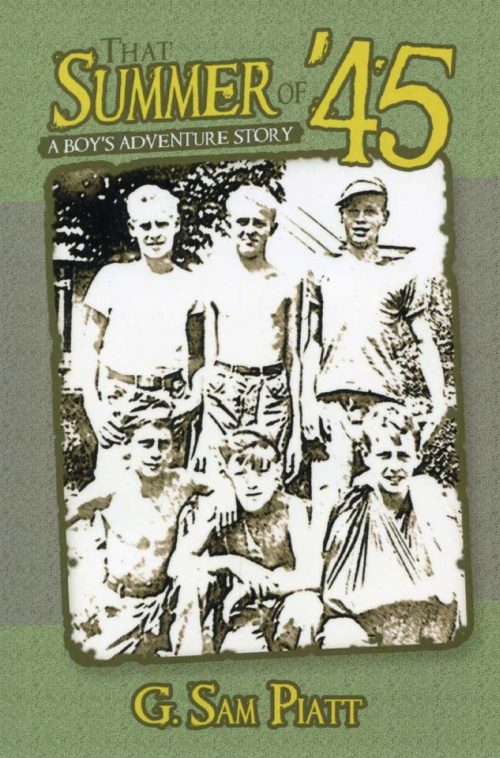 He had reached an age well past the three-score and ten that the Scriptures referred to as the allotted span of man’s life on earth. So it was understandable that he spent more time these days looking back than he did in looking to the future. He wondered if others were affected by nostalgia as strongly as he was of late. For the third time in a week, he had come awake in the middle of the night, staring at the ceiling, tears flowing down the sides of his face and onto the sheet. Oh how he longed to see again the people and the places in that little Ohio River village where he spent his boyhood days. SOFTBACK By Sam Piatt
He had reached an age well past the three-score and ten that the Scriptures referred to as the allotted span of man’s life on earth. So it was understandable that he spent more time these days looking back than he did in looking to the future. He wondered if others were affected by nostalgia as strongly as he was of late. For the third time in a week, he had come awake in the middle of the night, staring at the ceiling, tears flowing down the sides of his face and onto the sheet. Oh how he longed to see again the people and the places in that little Ohio River village where he spent his boyhood days. SOFTBACK By Sam Piatt



